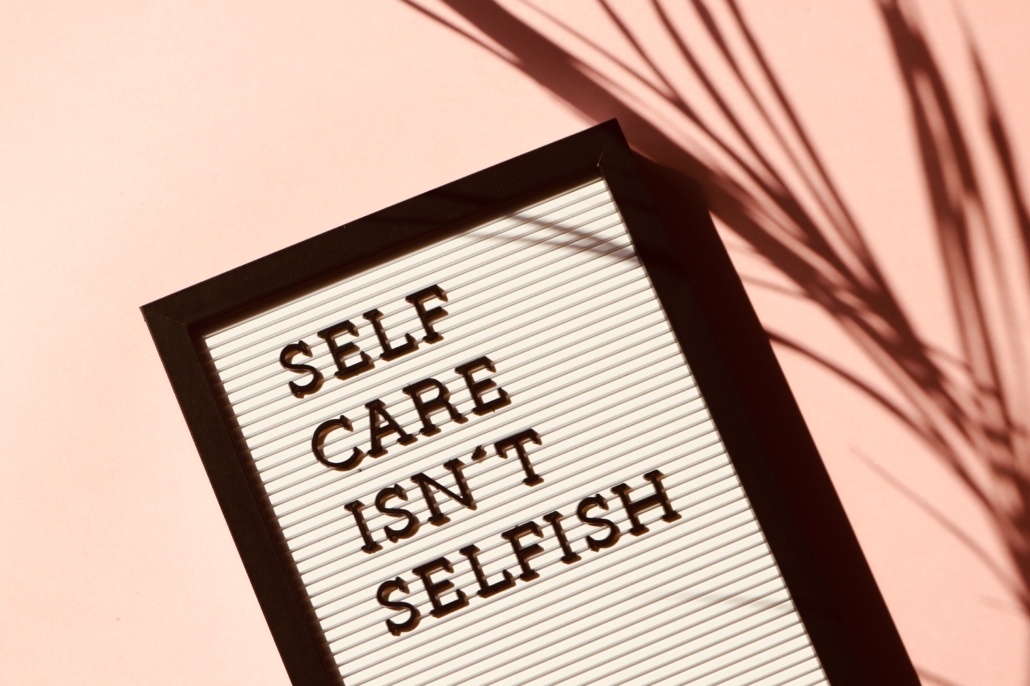CENTERING SELF-CARE TO REGAIN YOUR RIGHTS AND POWER

Centering your self-care connects you to yourself, which protects from confusion by anyone who uses coercive control. This is the third in a series of seven boosting resilience and empowerment for victims of intimate partner abuse.
Abuse Creates Mental and Physical Stress
“Traumatic stress reactions are normal reactions to abnormal circumstances.”[i]
The stress of intimate partner abuse causes self-protective strategies to kick in. You tune into your partner’s mood and stay vigilant for signs they are displeased and going to abuse again. This doesn’t leave energy, time, or permission to devote to what is important to you.
All forms of abuse are used to dominate victims by disconnecting them from everything that empowers them. Victims thus lose the freedom to be who they are. Disconnection happens with self-care, relationships with family and friends, and the right to make choices. The predictable results are confusion, difficulty thinking clearly, and self-doubt, which then paralyzes decision-making. A comment I’ve often heard is “I feel like I’ve lost myself.”
Other common effects are depression, anxiety, and an inability to focus and concentrate. Nightmares or flashbacks may occur. People or events that remind victims of past trauma trigger the same fear and may cause a panic attack. Survivors’ management of strong emotions becomes hampered, even as the abuse creates them.
Studies show that those who experience abuse also have an increased incidence of physical symptoms and diseases. Heart disease, high blood pressure, ulcers, migraine/headaches, indigestion and diarrhea/constipation, spastic colon, chronic pain, and others, occurred more compared to the general population.
Research also indicates that psychological abuse is as strongly associated with health risks as physical abuse.[ii] Another study reported that “abuse of power and control was more strongly associated with these health outcomes than was verbal abuse.”[iii]
Personalizing Abuse Injuries
Mental and physical symptoms are often used as proof by abusive partners that you’re weak or crazy. This may result in you also seeing the mental effects as personal problems and flaws, instead of recognizing they result from how you are treated. Remind yourself that trauma symptoms you experience are normal reactions to abnormal circumstances. You are not responsible for how you’re affected; that rests with the person who chooses to use power and control over you.
Sometimes health care providers and therapists diagnose symptoms without recognizing the context that caused them. When symptoms occur after entering the relationship, they are predictable injuries from abuse. If depression or another disorder was present prior to the relationship, that makes you more vulnerable to the abusive person, but it does not cause their abuse.
Loss of the freedom to be yourself represents the most profound injury because it disconnects you and causes you to lose trust in yourself. Margaret Paul says that all abuse is spiritual abuse because it violates our spirits.[iv] The following definition of spirituality highlights why intimate partner abuse is so harmful.
“Spirituality is recognizing and celebrating that we are all inextricably connected to each other by a power greater than all of us, and that our connection to that power and to one another is grounded in love and compassion.” Brene Brown[v]
You may feel great sadness because your intimate relationship used power and control to betray your love and compassion. Centering self-care aids you in healing from that and regaining your power and rights.
The Value of Self-care
Now we’re ready to dig into self-care practices. Centering self-care de-stresses and connects you to your emotions and thoughts. This creates a resilient buffer from all stress, including abuse. By regaining your former self-care methods and perhaps adding new ones, you can reconnect with yourself and regain your power.
Self-care also serves to improve self-esteem. The more you treat yourself well, the better you will feel about yourself.
What self-care looks like to you is personal. My Stress Management Points handout names a few methods, but you may add to this list. Being in nature, exercising, praying, talking with a friend, and taking a bubble bath may be easier ones to weave into your life. Journaling, meditating, and practicing mindfulness are valuable, and may take more time. Begin with whatever works for you.
This handout is meant to encourage self-care and its importance, not to promote guilt about how much you’re doing. All methods of self-care give us energy to manage responsibilities. Begin by choosing one thing and gradually increase its frequency.
Roadblocks that Interfere

Centering self-care may feel impossible. The heavy hand of abuse interferes with many things survivors would like to do. Even after they leave, many feel that everything they need to manage crowds out time for self-care.
For those still in abusive relationships, a huge roadblock is safety. You may be punished verbally or physically for doing anything for yourself. Abusive partners often call self-care “selfish” except when they do things for themselves. Until you are safe, you be strategic by planning small things, such as devoting five minutes of quiet time in your car before doing grocery shopping. A reminder: domestic abuse programs and therapists can help you make a safety plan.
Those who leave abusive relationships often feel burdened with many responsibilities that interfere with personal time. They may also think the abuser was right that it is selfish to do things for yourself.
The lie many of us believe is that self-care isn’t as important as others’ needs. We put ourselves last. This is disproven by articles that highlight its importance for maintaining mental and physical health.[vi] Even a couple of minutes is helpful.
View self-care as stress management, a skill we all need and that will be important throughout life. It keeps us healthy and able to enjoy our lives. If you have children, remember that you are a model for them. By taking care of yourself, they will learn to respect and value themselves and their needs.
[i] Trauma-Informed Care in Behavioral Health Services. Treatment Improvement Protocol (TIP) Series, No. 57.Center for Substance Abuse Treatment (US). Rockville (MD): Substance Abuse and Mental Health Services Administration (US); 2014. https://www.ncbi.nlm.nih.gov/books/NBK207191/
[ii] https://pubmed.ncbi.nlm.nih.gov/10810951/ “Physical health consequences of physical and psychological intimate partner violence.” A L Coker 1 , P H Smith, L Bethea, M R King, R E McKeown
[iii] https://pubmed.ncbi.nlm.nih.gov/12406480/ “Physical and mental health effects of intimate partner violence for men and women.” Ann L Coker 1 , Keith E Davis, Ileana Arias, Sujata Desai, Maureen Sanderson, Heather M Brandt, Paige H Smith
[iv] Do I Have to Give Up Me to Be Loved by God? by Margaret Paul. (Deerfield Beach, Florida: Health Communications, Inc., 1999)
[v] Braving the Wilderness: The Quest for True Belonging and the Courage to Stand Alone by Brene Brown. (New York: Random House, 2017)
[vi] https://www.nimh.nih.gov/health/topics/caring-for-your-mental-health

